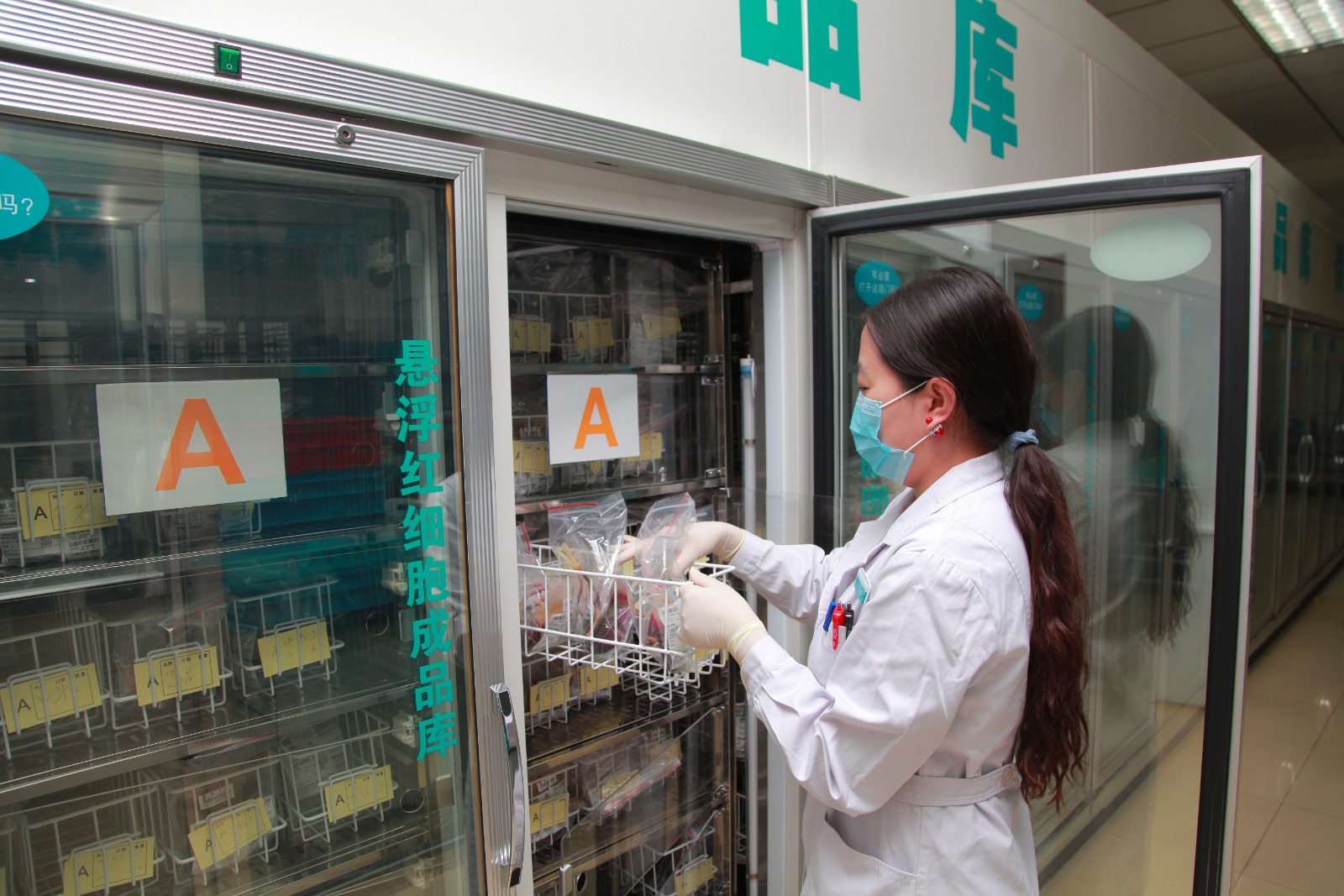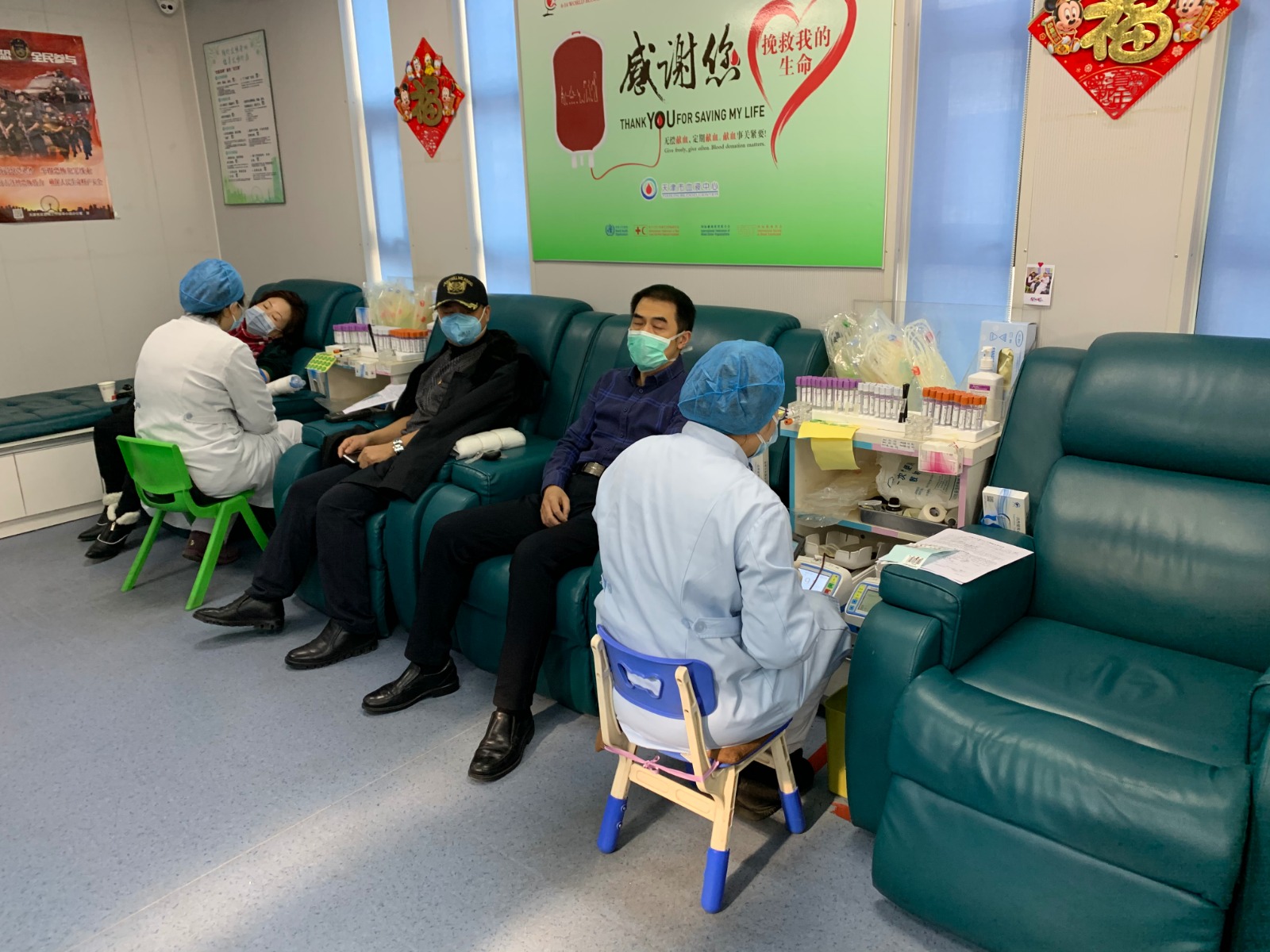
A medical worker is organizing blood samples at a blood center in northern China's Tianjin Municipality, Feb. 10, 2020. (Photo provided by Tianjin Blood Center)
TIANJIN, Feb. 11 (Xinhua) -- Medical student Li Rui's experience of donating blood was a little different than usual.
Besides completing a physical examination and blood screening, Li, 25, also had her temperature taken and reported her travel history at a blood center in northern China's Tianjin Municipality.
In the lobby of the center, medical workers wearing disposal gloves carefully wiped chair arms and door handles with disinfectant, sprayed alcohol on the ground from time to time, and kept blood donors lined up at least one meter apart from each other.

People are donating blood at a blood center in Tianjin, north China, Feb. 10, 2020. (Photo provided by Tianjin Blood Center)
"Amid the novel coronavirus outbreak, the number of blood donors is much smaller than usual," said Li, who studies at Tianjin Medical University.
"I am a medical student. I know the importance of blood donation at this special time."
According to the blood center, the number of blood donors at the center was about 1,200 from Jan. 23 to Feb. 8, down 60 percent from the same period last year.
In Tianjin, more than 90 percent of blood donations come from the mobile blood collection vehicles on the street.
Blood from Tianjin Railway Station, the largest blood collection point in the municipality, contributes about one-third of the annual blood supply of the city.
"We used to collect up to 300 units of blood every day at the donation point," said Li Hongzhu, deputy director of the Tianjin Blood Center. "Since the coronavirus outbreak, we once collected only two units a day."
"Affected by the epidemic, we have also reduced the blood supply to hospitals to about 300 units every day," said Li. "In the past, our daily blood supply could reach 600 to 800 units."
The blood consumption in hospitals has to be reduced.
"We can only offer blood to patients in urgent, dangerous and critical situations," said Li Daihong, a doctor at the First Central Hospital of Tianjin. "Some surgeries have been postponed or suspended."
Tianjin has activated a first-level emergency response to contain the spread of the epidemic.
In response, the blood center only opens eight donation points across the city and leaves another six in flexible opening hours. All the mobile blood collection vehicles and stations carry out regular disinfection. The center also provides a 24-hour hotline for blood donation appointments.
"After taking good personal protection measures, it is safe to donate blood during the epidemic," said Li.
"As a medical worker, although I am unable to go to the front line to combat the disease, I can still help patients," added Li Rui. ■



